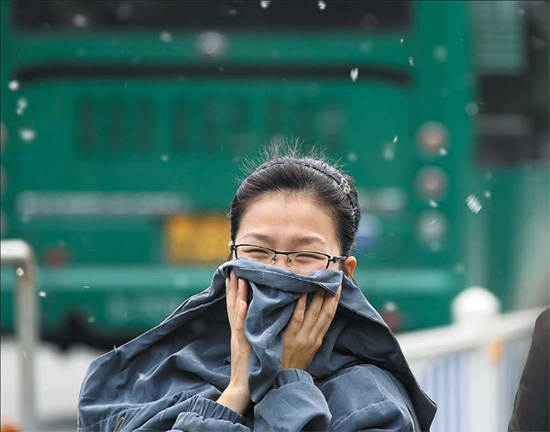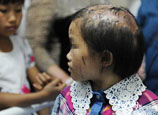
 |
| Spring is one of the worst seasons for allergy sufferers, because so much pollen is in the air. (China Daily) |
The change of seasons may be delightful to many, but for people who suffer skin allergies, dust and pollen can agitate conditions that make life unpleasant. Liu Zhihua reports.
The change of the weather to spring and summer is usually a delightful time, as trees turn green and flowers bloom.
But for people suffering from skin allergies, the change of seasons can be difficult, with recurring symptoms being agitated, such as skin dryness, redness, itching, swelling and sometimes blisters.
Although there are no national statistics on the prevalence of skin allergies in China, there are rising rates of skin allergies in the United States and other developed countries.
China is also experiencing an increase of skin allergy patients, experts say.
"The number of skin allergy patients in China is on the rise, and urban people tend to be more likely to suffer from the disorders than rural residents," says Liu Lingling, a skin disease specialist with No 1 Hospital of Peking University.
When she started working 30 years ago, skin allergy patients were seldom seen in hospitals, but now skin allergies prompt 50 to 60 percent of visits to skin disease doctors in small hospitals and 30 to 40 percent in big ones, Liu says.
The disorders break out when a person's immune system reacts to normally harmless substances that the body ingests or comes into contact with. Symptoms include eczema and hives.
The allergies are usually mild, despite causing discomfort, but can also be life threatening if they result in a sharp drop in blood pressure, Liu notes.
"Spring and autumn are the most prevalent time for skin allergies, when allergens such as pollen from catkins, seeds, pet hairs and waste are in the air," says Song Peihua, a skin disease specialist with China-Japan Friendship Hospital in Beijing.
Song says skin allergy patients make up the majority of her patients.
Li Tianhua, 27, a Shanghai resident, had redness and swelling in the skin around her eyes in April, and was bewildered when doctors told her she had skin allergies.
Her family has no history of allergies, and she had never before suffered from allergies - or so she thought.
Then Li remembered that in recent years she occasionally suffered from rashes if she walked past trees in bloom.
"I thought I had never been allergic and would never be," Li says. "I was wrong."
She later noticed that a number of her friends and colleagues were suffering skin allergies this spring, even those who had never been allergic before.
The mechanism of skin allergies is complicated, but modern lifestyles definitely contribute to the disorders, says Liu, the skin disease specialist.
There are many chemical products used in daily life, which may contain potential allergens.

















 Maserati limousine wreck over car parts quality claim
Maserati limousine wreck over car parts quality claim


![]()
